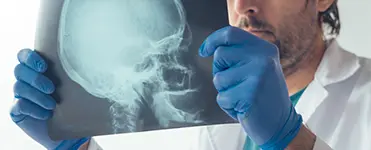What To Do For Whiplash After A Car Accident
Car accidents are often unexpected, causing events that can lead to a range of injuries, in which one of the most common is whiplash. While whiplash might seem like a minor injury, it can lead to significant pain and complications, impacting one’s physical and financial well-being. In cases where the accident is not one’s fault, it becomes crucial to take specific steps to ensure proper treatment, determine liability, and file claims.
This blog discusses the importance of seeking emergency care, understanding liability, and finding personalized assistance, particularly through organizations, to get maximum compensation for the injuries and whiplash pain after an accident.
Diagnosed with a whiplash injury after a rear-end car accident?
Understanding Whiplash and Its Impact
Whiplash occurs when the neck experiences a sudden, forceful back-and-forth movement, commonly seen in rear-end accidents. It is a deceptive injury, often downplayed due to its initial symptoms being manageable. However, the consequences of not seeking immediate medical attention and proper care can be severe and long-lasting.
The neck is a delicate and intricate structure, comprised of vertebrae, discs, nerves, and muscles that work harmoniously to support and enable smooth movement. When the neck experiences the forceful back-and-forth movement of a whiplash injury, this intricate system can be disrupted, leading to a range of symptoms.
- Neck Pain and Stiffness: Neck pain and stiffness are the hallmark symptoms of whiplash. The sudden, forceful motion of the head strains the neck’s muscles and ligaments. The pain may radiate to the upper back and shoulders, making simple tasks like turning the head or looking up and down painful and difficult.
- Headaches and Dizziness: Whiplash can trigger headaches that range from mild to severe, and they may persist for days or weeks after the accident. The forceful motion can cause tension in the neck muscles and affect the blood flow to the head, leading to headaches, dizziness, and lightheadedness.
- Radiating Pain to the Shoulders and Arms: The neck contains nerve pathways that extend into the shoulders and arms, leading to radiating pain, numbness, or tingling sensations in the shoulders, arms, and even hands. In severe cases, this may indicate nerve compression or herniated discs, which require immediate medical attention.
The underestimated risk with this neck injury increases the chance of long-term effects. Without proper care and treatment, it can evolve into chronic pain, limited range of motion, and a diminished quality of life.
What To Do For Whiplash After A Car Accident

The aftermath of a car accident can be a challenging and emotional time, but seeking justice and support is essential. If you believe that the accident was not your fault and you have sustained whiplash or any other injuries, take the following steps to protect your rights and ensure a fair outcome:
Seek immediate medical care
Regardless of how minor the whiplash may appear, your first action should be to seek immediate medical attention after a car accident. This ensures that injuries are promptly identified and treated and creates a record of your injuries, linking them directly to the accident. Such documentation is vital for building a strong case when seeking compensation from the at-fault party.
What happens if you don’t seek medical care? While the initial symptoms of whiplash may seem manageable or even mild, failing to seek medical attention promptly can lead to several detrimental outcomes.
- Delayed onset of symptoms: Whiplash symptoms may not be immediately apparent after an accident. In some cases, it can take several hours or even days for symptoms to fully manifest. During this time, the injured person may be tempted to dismiss the accident as inconsequential, leading them to forego seeking medical attention.
- Aggravation of injuries: This soft tissue injury involves muscles, ligaments, and tendons in the neck. Untreated whiplash may lead to secondary complications such as muscle spasms, difficulty sleeping, and even psychological distress due to the chronic neck pain and limitations it imposes on daily activities.
- Underlying injuries: Whiplash can sometimes mask or overshadow other injuries sustained during the accident. For instance, the forceful impact of a collision could cause damage to the spine, nerves, or internal organs, which may not be immediately apparent.
- Complications and chronic pain: Neglecting medical treatment for whiplash can increase the risk of complications. For instance, untreated injuries can lead to the formation of scar tissue, which can cause long-term pain and stiffness. Chronic pain resulting from untreated whiplash can significantly impact an individual’s quality of life and ability to perform daily activities.
- Impact on legal case: If you decide to pursue compensation for your injuries, delaying or disregarding medical treatment can weaken your case. Insurance companies may argue that your injuries are not directly related to the accident or that they are not as severe as claimed, reducing the potential settlement offer. Without documented medical evidence linking your injuries to the accident, it becomes challenging to build a strong case.
Preserve evidence
Gather as much evidence at the accident scene as possible. Take photographs of the vehicles involved, the location of the accident, and your accident injuries. Also secure copies of the police report, treatment and physical therapy records, imaging test results, and receipts of your medical bills. If there were witnesses, try to collect their contact information as their statements could be valuable in determining liability.
Notify authorities
Call the police and report the accident. Their arrival will ensure an official report is created, which can serve as valuable evidence when determining fault.
Avoid talking about the accident
While it is essential to cooperate with the police and your insurance company, avoid admitting fault or discussing the accident with anyone else until you have consulted with a legal professional. Anything you say at the scene or later can potentially be used against you by insurance adjusters.
Consult a California personal injury attorney
To ensure you receive the compensation you deserve, consult an experienced personal injury attorney who specializes in car accidents and whiplash cases. They will guide you through the legal process, handle communication with insurance companies, and advocate on your behalf to ensure your rights are protected.
Liability and Determining Fault
Determining liability in a car accident is essential for pursuing a personal injury claim. In cases where the accident was not your fault, the responsible party’s insurance company should cover your medical expenses and other damages.
Liability is often established by gathering evidence, such as police reports, eyewitness accounts, and photographs from the accident scene. Seeking legal advice from an experienced personal injury lawyer can be immensely helpful in navigating the complex process of establishing fault and negotiating with insurance companies.
Consult a Personal Injury Attorney Today
A car accident that results in whiplash can be physically and emotionally draining. However, by taking immediate action, seeking medical attention, and enlisting the support of a reputable organization, you can protect your health, rights, and financial well-being. Remember that whiplash, even though it may seem minor, can lead to significant consequences, and seeking proper care is essential for a full recovery.
If you find yourself in such a situation, don’t hesitate to seek help. Reach out to legal experts and medical professionals, who are committed to providing personalized assistance while fighting for justice. By taking these steps, you can pave the way to recovery and move forward with confidence, knowing that you are not alone in this journey. Your well-being matters, and advocating for your rights after a car accident is an essential step towards reclaiming your life.
Ayuda California has a team of award-winning personal injury lawyers, medical experts, and case handlers, offering a personalized approach to each case, working together to create a comprehensive strategy tailored to your specific needs.
Call us today at (844) 865-0721 for a free consultation. We are available 24/7.




















